Follifoot Park Disabled Riders Group: building bonds
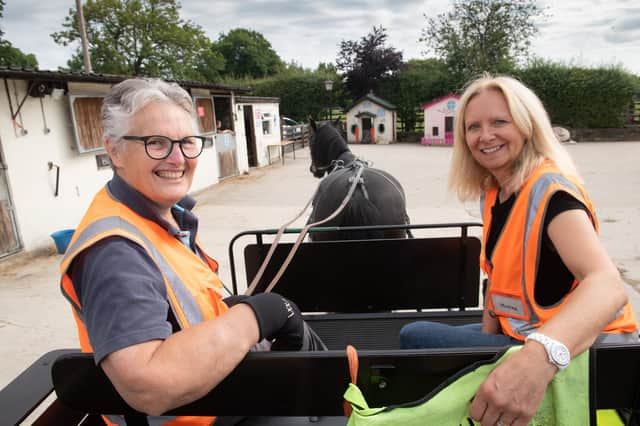

But when combined with spending time with an animal, that benefit can be magnified and, in some cases, produce feelings and emotions that are really special.
Whether it be walking a dog, visiting a farm park or perhaps going horse riding, the bond between human and animal is often instant and, in some cases, can last a lifetime.
In this month’s Team North Yorkshire, community reporter Louise Perrin spoke to Follifoot Park Disabled Riders Group (FPDRG) to discover just how beneficial that special bond can be.
FPDRG was originally formed in 1986 and became an independent charity in 1994. Julie Pedley, the owner of Follifoot Park Riding Centre, and FPDRG founder Rosie Towers wanted to offer disabled riders the unique benefits of horse riding, so Rosie decided to recruit the necessary helpers.
Thanks to her dedicated efforts FPDRG now has 150 volunteers who help to provide 14 regular rides each week.
During the past 33 years hundreds of riders, both young and adult, have enjoyed this opportunity.
Horses are made available to the charity by Follifoot Park Riding Centre.
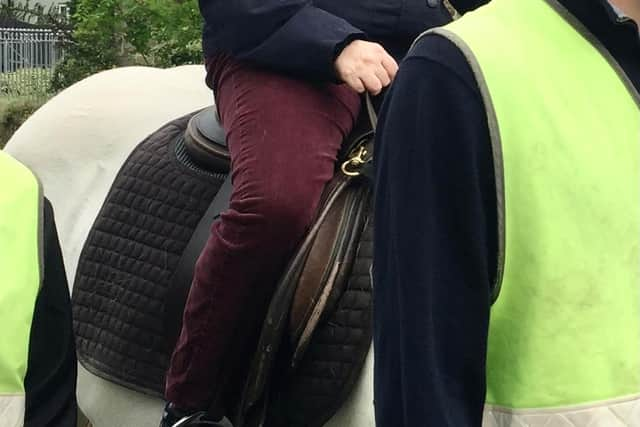

FPDRG chairperson Morag Bennett said: “We pretty much take anybody. They give us horses that they know will be fairly bulletproof.
“Anybody who wants to get on a horse, we’ll get them on. Our view is that if someone wants to get on a horse, we’ll make it accessible for them.
“We go steady to begin with, one of our volunteers is a physiotherapist and she makes sure riders are safe and comfy.
“We look at the individual, to see what suits them best. If they don’t have the capability, we have the use of a mechanical horse and some start there, so we can have a look and then transfer to a real horse, but most people start on a real horse.”
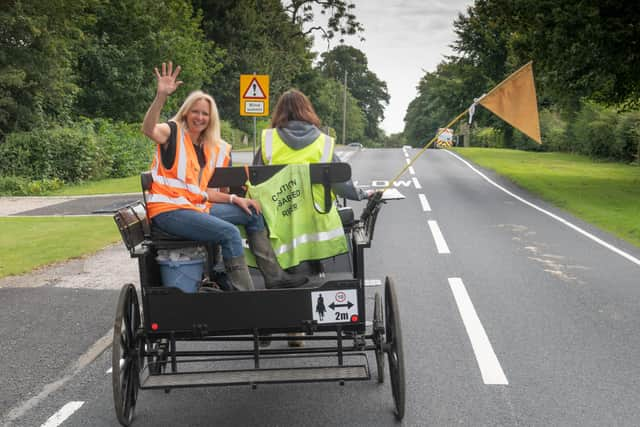

Morag said the benefits of riding are numerous, it’s good for both the riders physical and mental wellbeing and is also beneficial to those needing rehabilitation.
She said: “There is definitely a bond with the horses. The horses are fantastic, only selected horses can do what we do and we rely on them.
“We have had a situation where a rider has epilepsy and the horses simply stand, wait and are patient.
“For those who spend a lot of time in a wheelchair, it’s good for them to see the world from a different angle.
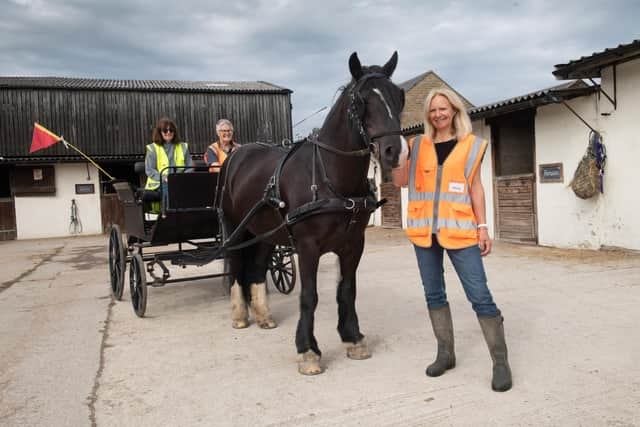

“It’s a risky thing for people to do. A lot of disabled people are wrapped up in cotton wool. It’s good to get a bit of fresh air, a bit of fun and some exercise and we have good banter with them.”
Morag, 55, became involved with FPDRG 13 years ago when she moved to Harrogate with her young children.
She said: “I was not working and I needed to do something very nearby. My brother-in-law suggested Follifoot and it just felt like the perfect fit to go and have a bit of a horse fix once a week.
“It’s a commitment, but I’m not over committed. I still do two rides a week on a Monday afternoon and a Wednesday morning.”
Every care is taken to keep riders safe, there’s often three volunteers with each horse, most have a lead walker and two side walkers. Morag said: “It’s a bit of a jigsaw puzzle, most of the 14 rides have their own group of volunteers (four horses need 12-13 volunteers) and safety is the number one issue.”
Volunteers span a complete range of ages, some have been with FPDRG nearly 30 years while others may be Duke of Edinburgh Award students.
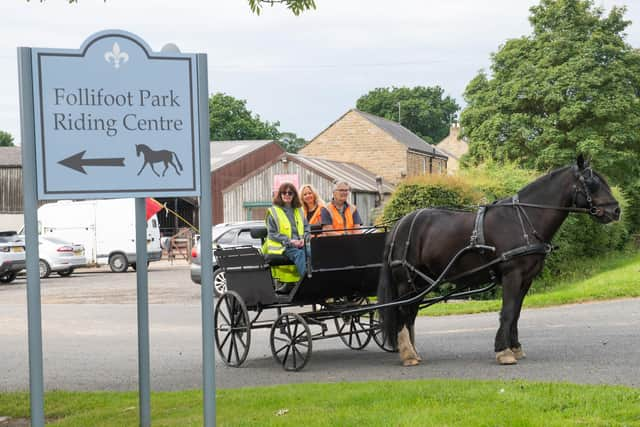

Anne Waite, 78, started volunteering with the disabled riding group in 2002 when she retired. She was attracted to the organisation through a combined love of horses and a desire to help people.
Anne said: “The first thing I did was help the founder, Rosie Towers, with the carriage driving. I was born on a farm and had a pony and have always been involved with animals.
“During lockdown I missed it a lot. It’s a big part of my life, hopefully making people happy which we do.
“With some you can’t tell, but even if they can’t talk to me I chat to them. You get smiles and you can see that they’re not agitated. It makes your day.
“I think the movement does help, and hearing Betty on the road clip-clopping along.
“The carriage makes it accessible for all, people that can’t ride or are getting too old to be safely on horses, those in wheelchairs or those who arrive by ambulance.
“I get an awful lot out of it. It’s nice to give something back.”
Victoria Thomas, 43, has been coming to Follifoot Park Disabled Riders Group for the last 18 years. After moving into supported living, Victoria and her parents Harriet and David looked around for an activity she could engage with.
Victoria said: “I like horses, and that’s my hobby as well. Mum and dad take me, and when they’re on holiday one of my housemates takes me.”
Harriet said: “David and I pick up Victoria and take her horse riding. It helps her balance as she has slight issues with balance and coordination.
“She feels quite independent on a horse and very confident.
“She loves riding. It's done a lot for her.
“There seems to be an affinity between disabled people and the horses, they have a lot of pleasure stroking and talking to them.
“The best times are the indoor rides when Victoria gets a chance to do slight trotting, there’s always a lead walker and side walkers to make sure she’s safe.”
David said: “If anyone is thinking of getting involved, I’d encourage and recommend it. They're lovely people who run it and Victoria gets great pleasure from meeting the staff.
“They’re all extremely good with disabled people.”
FPDRG currently has around 150 volunteers, but with 14 rides a week and each needing 12-13 people, they are always happy to hear from anyone with a couple of hours to spare each week.
If you would like to get involved check out the website at www.follifootparkdrg.org.uk to find out more.